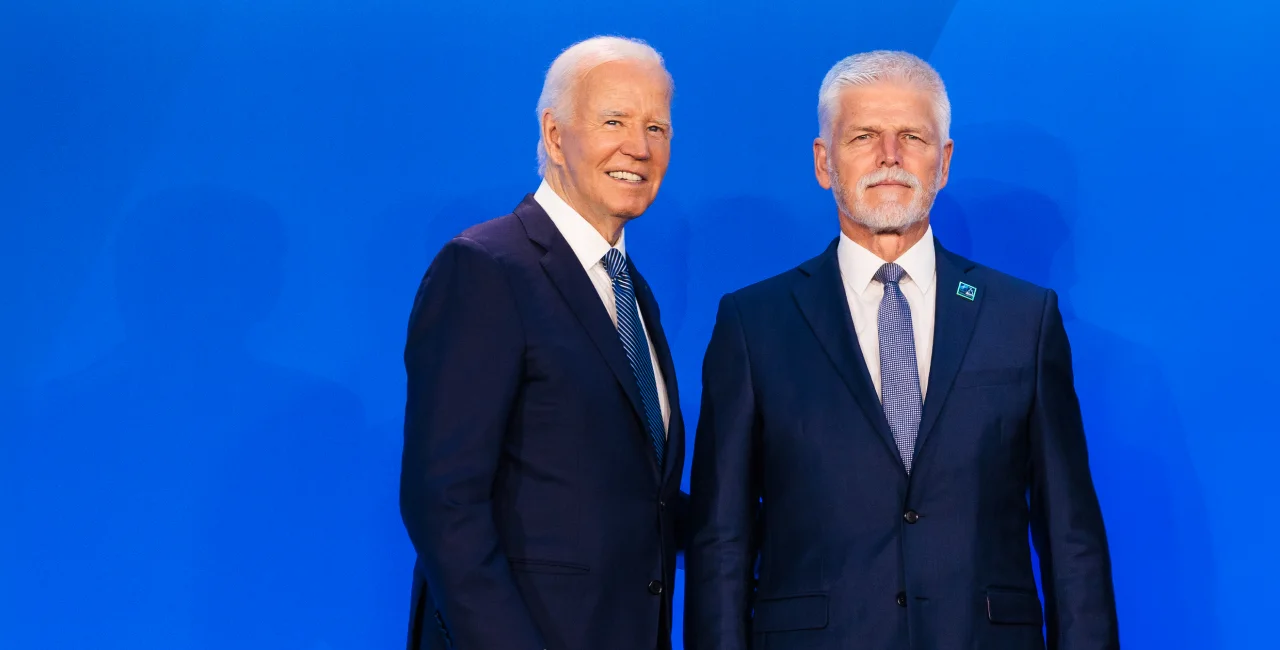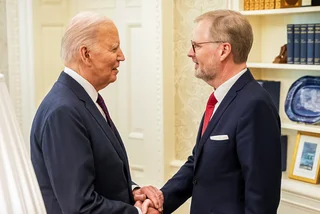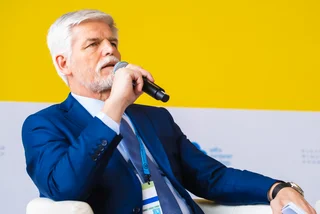Czech President Petr Pavel said in an interview with news agency ČTK on Thursday that U.S. President Joe Biden’s decision not to seek re-election is a statesmanlike gesture that shows he recognizes the importance of elections for the U.S. and the world.
According to Pavel, Biden cares about the success of the Democratic Party and the U.S.. Pavel said Biden can effectively complete his remaining term in office.
Biden announced on Sunday that he will not run for re-election and endorsed his vice-presidential running mate, Kamala Harris, who already has the support of enough party convention delegates to secure the Democratic nomination, according to media reports.
A recent meeting with Biden
Pavel spoke with Biden two weeks ago during a visit to Washington and the NATO summit.
“I was fortunate enough to be very close to him. I was sitting [as close to him] for an hour and a half at the White House dinner as I am now from you. So we had a chance to talk about many things, not just politics,” he noted. He had a pleasant impression of Biden, who he said is an open and communicative person.
“It is obvious that his age is showing. Who does not show it? On the other hand, his performance was absolutely clear and understandable and in all blocks of the meeting,” Pavel noted.
Thank you, Mr. President. @POTUS pic.twitter.com/FrHvHJVnrn
— Petr Pavel (@prezidentpavel) July 11, 2024
When Biden misspoke at the end of the summit and referred to Ukrainian President Volodymyr Zelenskyy as Russian President Vladimir Putin, Pavel said the mistake could happen to anyone and is not just due to age.
“I certainly wouldn’t say he is incapable of holding the presidency. I think he will be able to do the six months he has left in office in full capacity,” the Czech president said.
Maintaining a close EU-US relationship
Pavel said the attention paid to the U.S. elections reflects that the U.S. is the leader of the democratic world and that all opponents and enemies look to it because any changes would affect them as well.
What is important for us, whoever the U.S. president, is that there is no significant change in U.S. policy towards Europe and the world. [This is so] that the U.S. does not isolate itself in foreign policy, militarily, or economically,” Pavel said.
He noted that cooperation and coordination of action are necessary for the democratic world to succeed in competing with various forms of authoritarian regimes.
He also discussed this with U.S. policymakers in Washington. And while there are hints of possible U.S. isolation in various campaign statements, neither Republican politicians gave the impression that such a view was significantly more prevalent.
“I tried to make it clear, understandable, that just as we will need the help of the U.S. in dealing with the war in Ukraine, the U.S. will need Europe in dealing with China. Likewise, our partners in the Indo-Pacific will need our solidarity if China is more assertive in the South China Sea or South Asia,” the president added.
Security in the Euro-Atlantic area, he said, is very closely intertwined with security in the Indo-Pacific.
“Even for us, though we think that, for example, the situation in the South China Sea does not affect us in the slightest. It is good to remember that more than 50 percent of the world’s goods volume passes through this region. If, for example, maritime transport were to be disrupted, this would have a very significant impact on European markets, and therefore on ours, within a few weeks,” Pavel added.












 Reading time: 3 minutes
Reading time: 3 minutes 


























